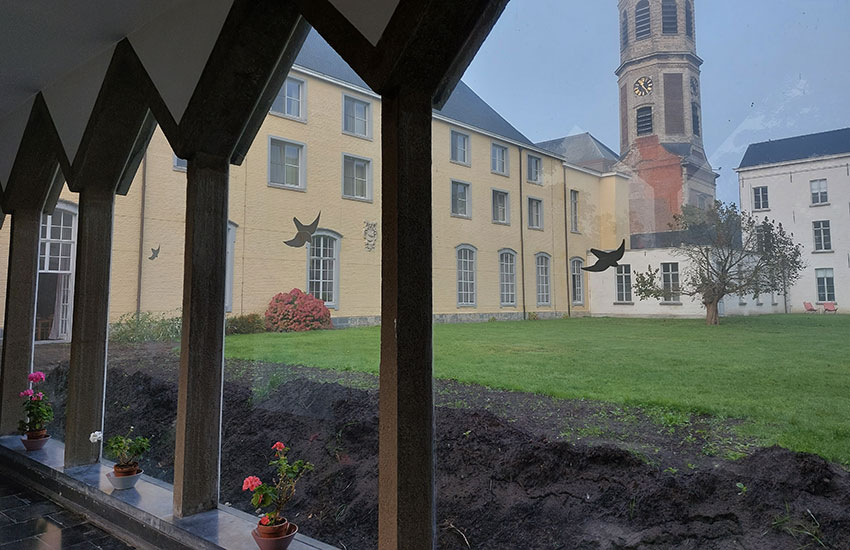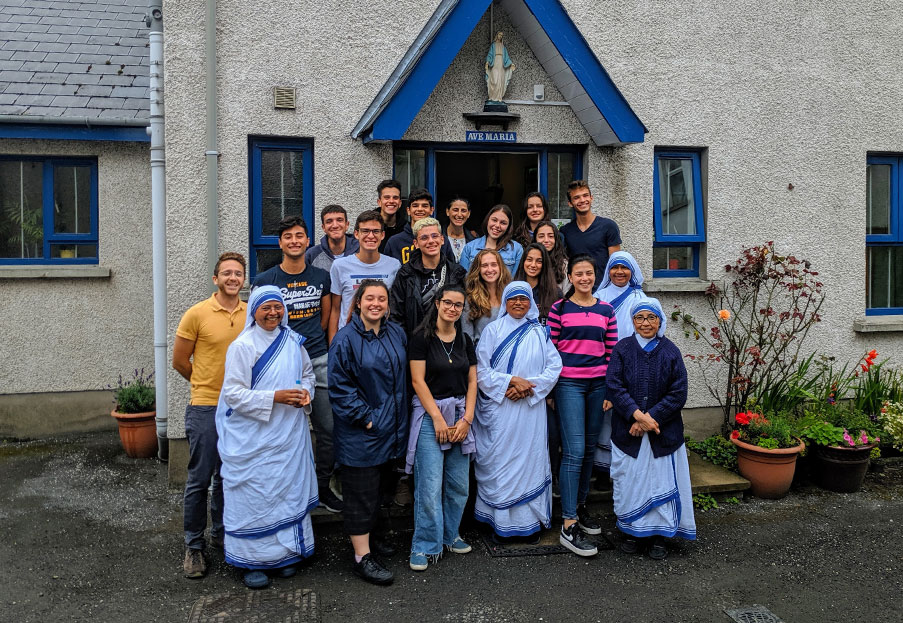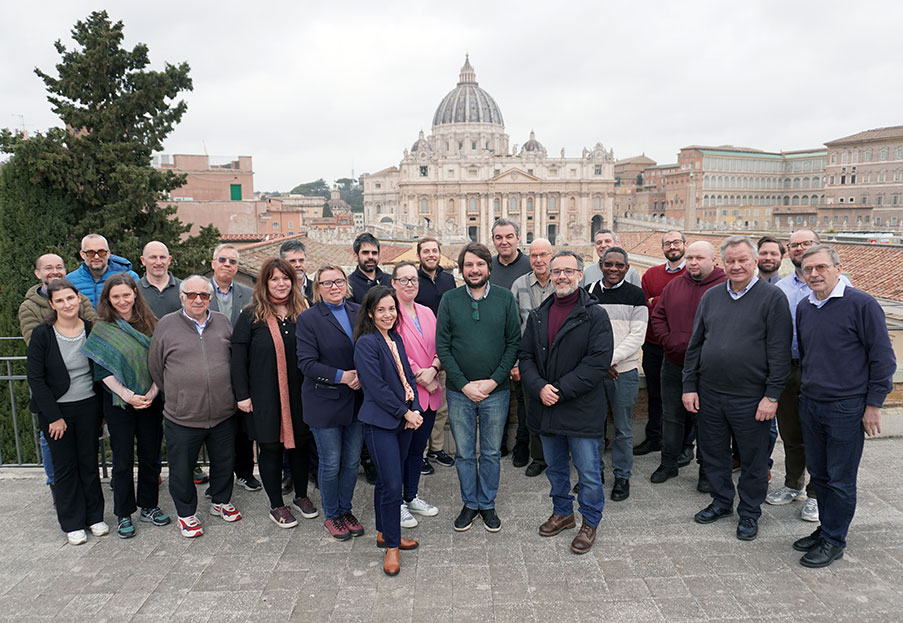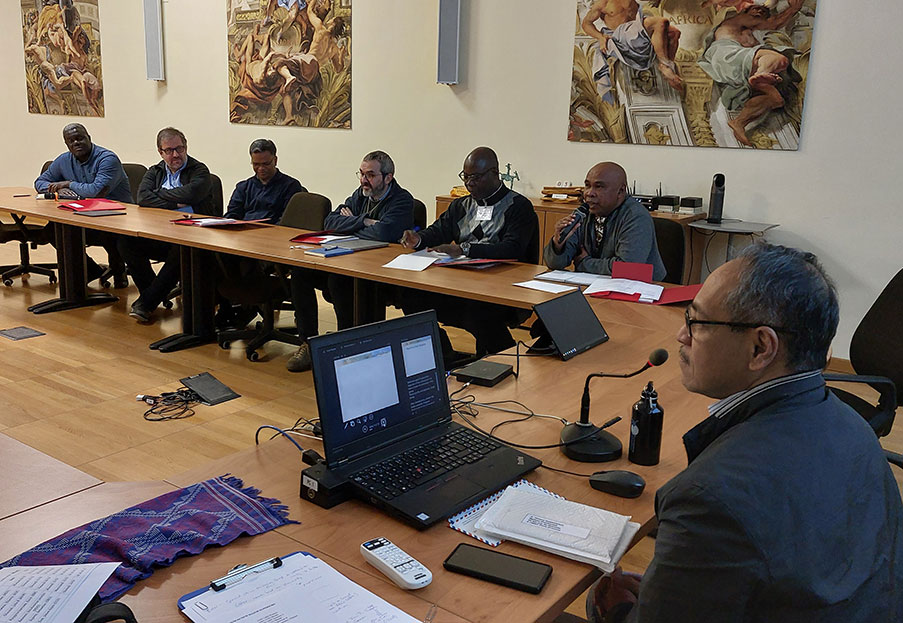Creating something ‘new’ in the ‘Old Abbey’ in Drongen
The Old Abbey in the Flemish town of Drongen is
a large complex founded by the Norbertines. The Jesuits acquired the building in
1836. For a long time it served as a novitiate, as well as a retreat centre
offering the Spiritual Exercises of Saint Ignatius. Ignatian retreats are still
in the programme there today. But it is now also a spirituality centre, as well
as a conference centre. The latter offers a variety for formation activities:
these include catechetical and cultural programmes. But in the near future, the
Abbey, so long a place of silence and meditation, will welcome a number of the
students of the Saint Barbara College, the Jesuit secondary school in Ghent. This
will provide a completely new direction, as the administrator of the Abbey,
Liesbeth Van den Bossche, explains.
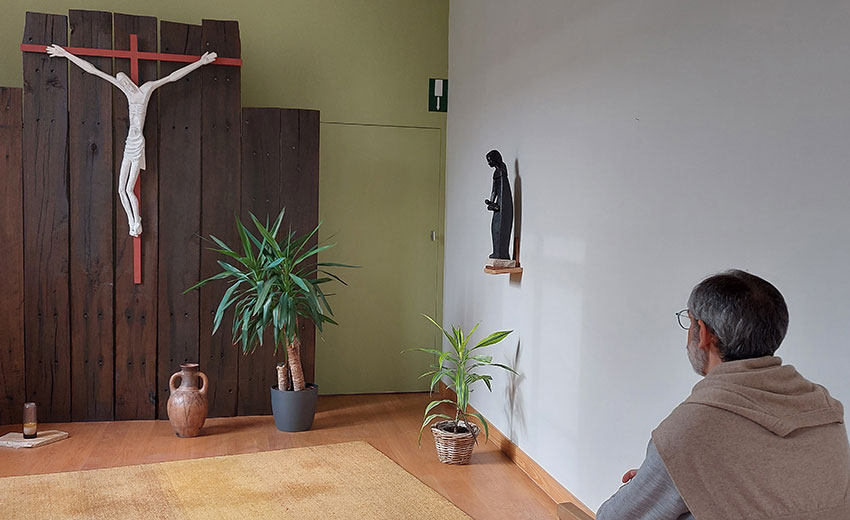
The arrival of the students is a key moment in the history of this Jesuit centre. What are your hopes that this project, which is already in train, will give new life to the“Oude Abdij” (Old Abbey)?
As an Ignatian work, the Oude Abdij is first of all a centre of Ignatian spirituality at the service of the ELC (European Low Countries) Jesuit Region. All of our activities are inspired by the Spiritual Exercises. But the conference centre also offers school groups, social and cultural organisations, and business people the opportunity to find peace and quiet in a spiritual setting and atmosphere. People are able to find energy and inspiration to face the future in this historic complex. There is room for everyone here!
A
dream that I had when I arrived here is now taking shape, and that is the
presence of a resident Jesuit community. Because the number of Jesuits in the
ELC Region is small, I was told that it was unrealistic to expect a Jesuit
community based at the Abbey. The thinking was that this is the time for lay
people, like myself, to take responsibility for ministries, including those
based in spirituality centres. The presence of any Jesuits is an asset, an “added
value.” Just this year, four Jesuit companions have come to live at the Abbey.
There will be no “us” (the laity) and “them” (the Jesuits) dichotomy. We form a
team, in which each brings his or her individual talents, to together nurture
the mission.
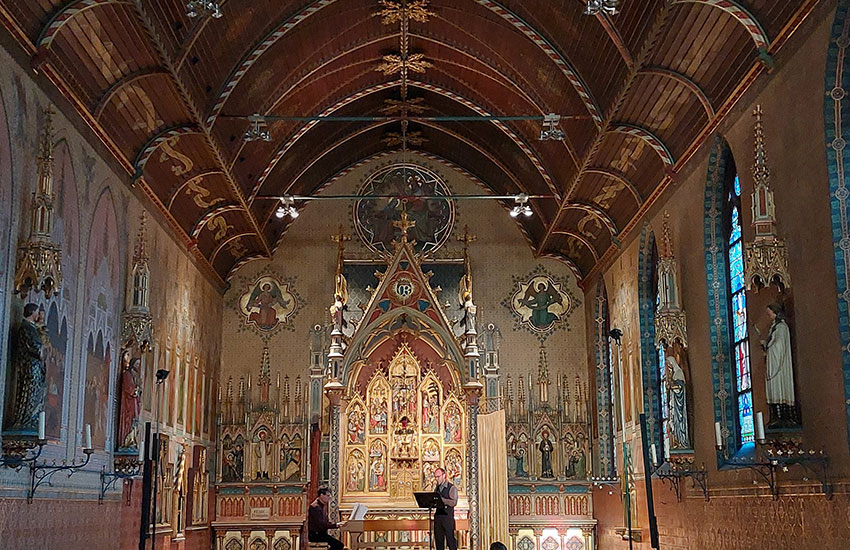
Leading a spirituality centre in a secularised environment like Flanders is a challenge in many ways...
A challenge for sure. The number of spirituality centres has decreased markedly in our country. But we try to offer a variety of programmes which may appeal to a variety of people: these include discernment, art, film, creative workshops, and even sport. We try to imbue these programmes with a spiritual dimension. Attracting young people is not easy, but it is a focus of ours, in line with one of the Apostolic Preferences of the Society of Jesus. We do this with the ‘Family Days’ programme, and the activities on the first Sunday of each month when adults attend a spiritual talk and teenagers have their own activity.
You also have another project that will rejuvenate the “Old Abbey”...
Yes,
it will be a new way for us to “accompany young people”. The “Old Abbey” will
soon share some of its facilities with the Jesuit secondary school of Ghent. Young
teenagers, from the first two years of secondary schooling, will be coming here.
It will be a challenge balancing the activities of the students and the
spirituality centre, but I believe it is possible: it is good for a spirituality
centre to have young people around. The
link with the spirituality centre will also open up several new opportunities
for the school. Since both the school and the centre are Jesuit-based, both build
on the same foundations, those of Ignatian spirituality. Will the teenagers be
too boisterous? They will spend most of the day in class, and go home at 4.00
pm. There will still be a lot of silence at the Oude Abdij!
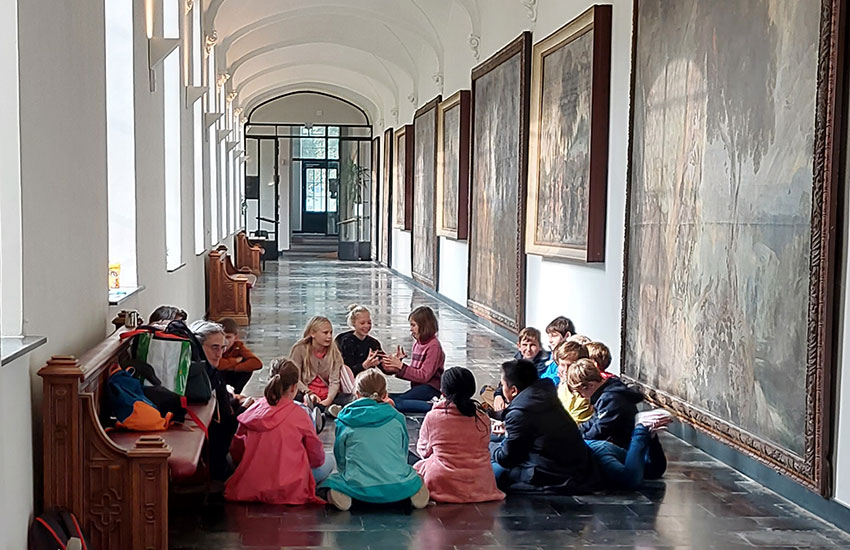
How do you see this renewal of the Old Abbey in the context of the apostolate of the whole ELC Jesuit Region?
The
Region is very much alive. What is happening here is also happening in other
Jesuit and Ignatian works. Thanks to the IgnAN network - we prefer to call it
the “IgnAN family” - we are able to work together. Everyone, with his or her
talents, can both give and receive: it is a context in which trust develops.
The network nurtures this with training sessions spread over a three year
period. And so, even if the Jesuits are few, the laity are playing their part
in writing the Ignatian story. The IgnAN network allows the mission of the
Society of Jesus and the commitment to the four Universal Apostolic Preferences to be structurally integrated. This
can then be applied in all the Ignatian works of the ELC.
